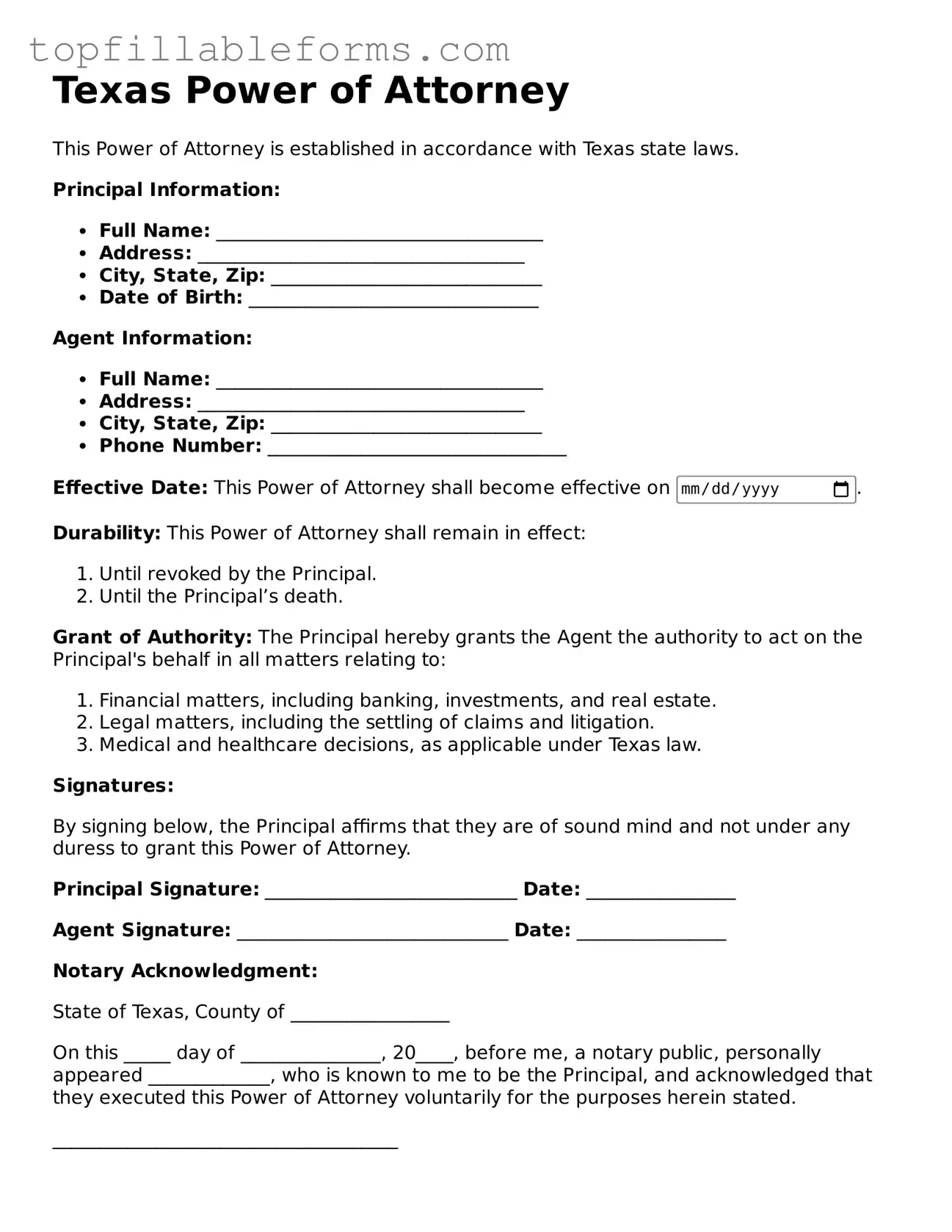Attorney-Verified Power of Attorney Template for Texas
A Texas Power of Attorney form is a legal document that allows one person to grant another person the authority to make decisions on their behalf. This form can cover a range of decisions, from financial matters to healthcare choices. Understanding its importance can help ensure your wishes are respected when you cannot speak for yourself.
Open Power of Attorney Editor Here

Attorney-Verified Power of Attorney Template for Texas
Open Power of Attorney Editor Here
Finish the form now and be done
Finish your Power of Attorney online by editing, saving, and downloading fast.
Open Power of Attorney Editor Here
or
▼ PDF File
